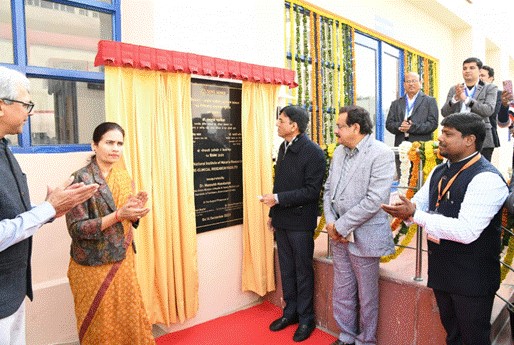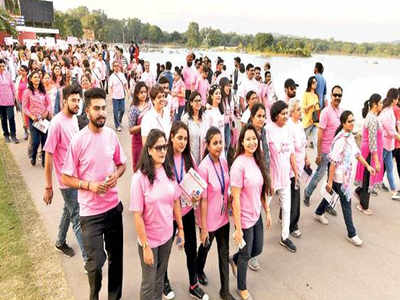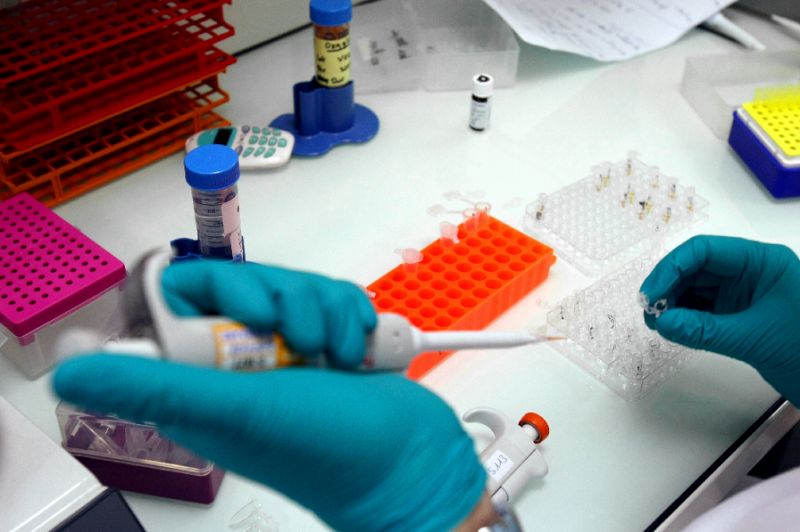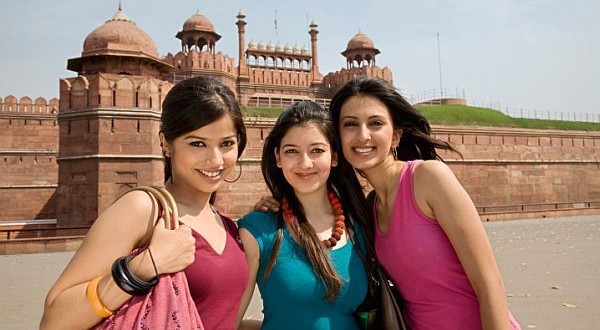New Delhi|HL
“Jai Jawan, Jai Kisan, Jai Vigyan, Jai Anusandhan – research and innovation will create a robust health research ecosystem and will be twin engines to drive our global competitiveness. Jai Anusandhan is a very important principle in the endeavour towards making India self-reliant.” This was stated by Dr. Mansukh Mandaviya, Union Minister of Health and Family Welfare while inaugurating five new facilities at the Indian Council of Medical Research – National Institute of Malaria Research (ICMR-NIMR) here today. The facilities included a Test Research Laboratory, an Innovation Complex, a Conference Hall Complex and a 300-seat Auditorium. He was joined by Prof. S.P. Singh Baghel and Dr. Bharati Pravin Pawar, Union Ministers of State for Health and Family Welfare.
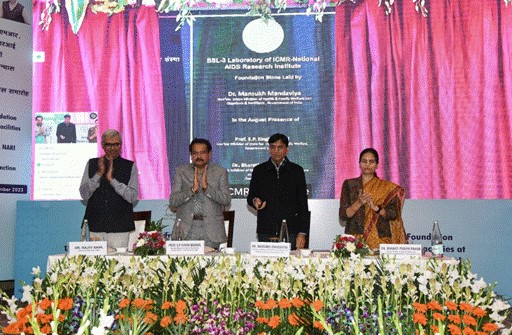
During the inauguration, Dr Mandaviya said, “this inauguration is indicative of the focus of the government on research and innovation in every field of health.” “Over the last four decades, these centres have conducted important research in many areas including emerging and re-emerging Viral Infections, Diarrheal disorders, HIV/AIDS, tuberculosis, hypertension, diabetes, AMR surveillance, Zoonotic diseases and other health problems. These are not just buildings but temples of health that the country needs today to make its health ecosystem self-reliant”, he stated.
The Union Health Minister stated that “the government is working to develop India’s health sector completely and make it self-reliant.” Highlighting the importance of “Jai Anusandhan”, he stated “during the time of Covid, it would have taken months for India to get the vaccine. But we not only developed the vaccine in the country itself, we provided the best quality vaccine at the cheapest price to the world. Similarly, there are 14-15 medicines for rare diseases like Hydroxy-urea that earlier used to cost tens of thousands of rupees. Today, these medicines are made in India and cost only a fraction of the earlier amount.”
On the health sector, Dr Mandaviya said that health is a very dynamic sector where new research, development and innovation happens every day. He stated that “the facilities we are inaugurating today in the service of the country show that India is ready to keep pace with the world. Institutions like ICMR are becoming increasingly strong today and are gaining a distinct place on the strength of their work all over the world.”
Dr Mandaviya stated that it is the aim of the Union Government to take India to the forefront in the field of health and scientific evidence-based treatment and noted the need for high-quality laboratories to fight the emerging variants of diseases like COVID. He urged the scientists, innovators and other people of the country who are developing new technologies in the field of health to use their new ideas, new thoughts, new innovations and new technologies to fulfil the dream of New India.
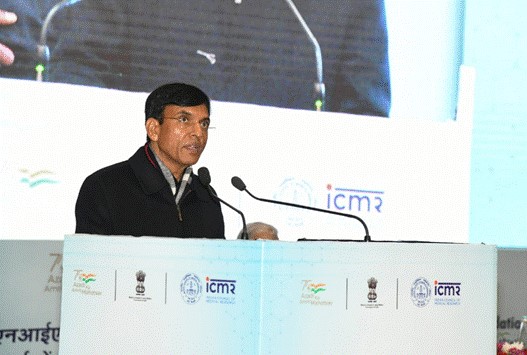
The Union Health Minister highlighted the century-long journey of ICMR and its role in shaping India’s medical research landscape. He informed that “with ICMR’s support, India provided COVID-19 vaccines, diagnostic kits, and personal protective equipment (PPE) to over 110 countries, reflecting the nation’s commitment to global health and solidarity”.
Dr. Mandaviya also commended ICMR-NIMR for pioneering India’s research towards tackling malaria. He said that “strengthening the institute’s infrastructure is a step towards moving to malaria elimination in the country by 2030”. He stressed on the need to put collective efforts not only on eradicating malaria but also other vector-borne diseases like dengue, Japanese Encephalitis, chikungunya, filariasis.
The Union Health Minister focused on the integration of technologies like Digital Health and Artificial Intelligence in healthcare. He emphasized the importance of innovative use of drones for vaccine and drug delivery and the exploration of organ transfer via drones, which would signify a major leap in healthcare accessibility and efficiency.
In his closing remarks, Dr. Mandaviya reiterated the importance of the ‘One Health’ approach, recognizing the interconnection of human, animal, and environmental health in addressing future health challenges.
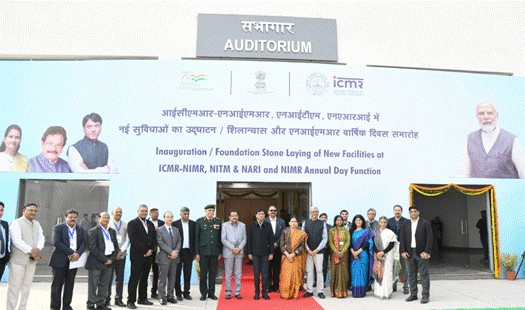
Dr Rajiv Bahl, Secretary, Department of Health Research and DG, ICMR; Dr Anup Anvikar, Director, ICMR-NIMR and senior officials of the Union Health Ministry were also present on the occasion.


